A billionaire-backed think tank keeps sabotaging Florida workers. More attacks are coming.
Records show a conservative group funded by one of Ron DeSantis' biggest donors wants to make it harder to find food stamps and affordable housing — but easier to exploit child labor.
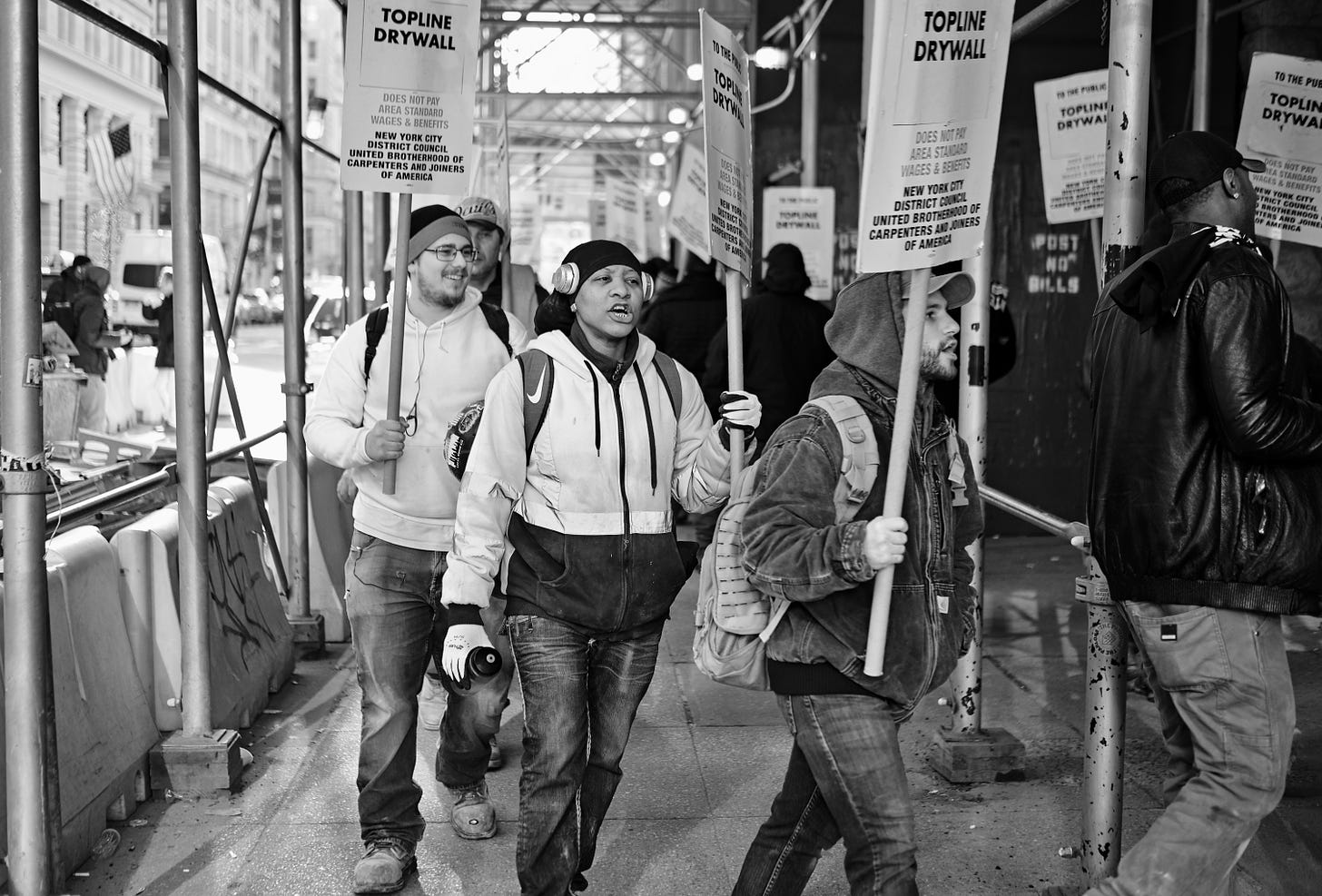
This is Seeking Rents, a newsletter and podcast devoted to producing original journalism — and lifting up the journalism of others — that examines the many ways that businesses influence public policy across Florida, written by Jason Garcia. Seeking Rents is free to all. But please consider a voluntary paid subscription, if you can afford one, to help support our work.
Last December, just a couple of weeks before Christmas, Florida Gov. Ron DeSantis flew to Naples to speak at a “summit” organized by the Foundation for Government Accountability, a conservative group that operates in state Legislatures around the country.
While he was there, records show, DeSantis slipped into a private room at the Naples Grande Beach Resort to meet with a handful of VIP guests. Only a dozen or so people were invited into that room, according to planning emails sent to the Governor’s Office — and at least three of them worked for organizations associated with Dick Uihlein, the Midwestern billionaire and Republican megadonor who is the largest funder of the Foundation for Government Accountability.
Uihlein, an heir to the Schlitz brewing fortune and the founder of the shipping supply company Uline, has been very good to Ron DeSantis. Campaign-finance filings show that Uihlein has given more than $2.4 million to DeSantis over the past five years — including $1.4 million to a state political committee that DeSantis used to control and another $1 million to a federal super PAC now financing his campaign for president. Uihlein’s wife, Liz Uihlein, has given DeSanits another $1.5 million.
And Ron DeSantis has been very good to Dick Uihlein and his Foundation for Government Accountability. Emails, schedules and lobbying records show that senior DeSantis aides have worked closely with FGA staffers while simultaneously cultivating Uihlein with perks like invitations to private events at the Governor’s Mansion in Tallahassee.
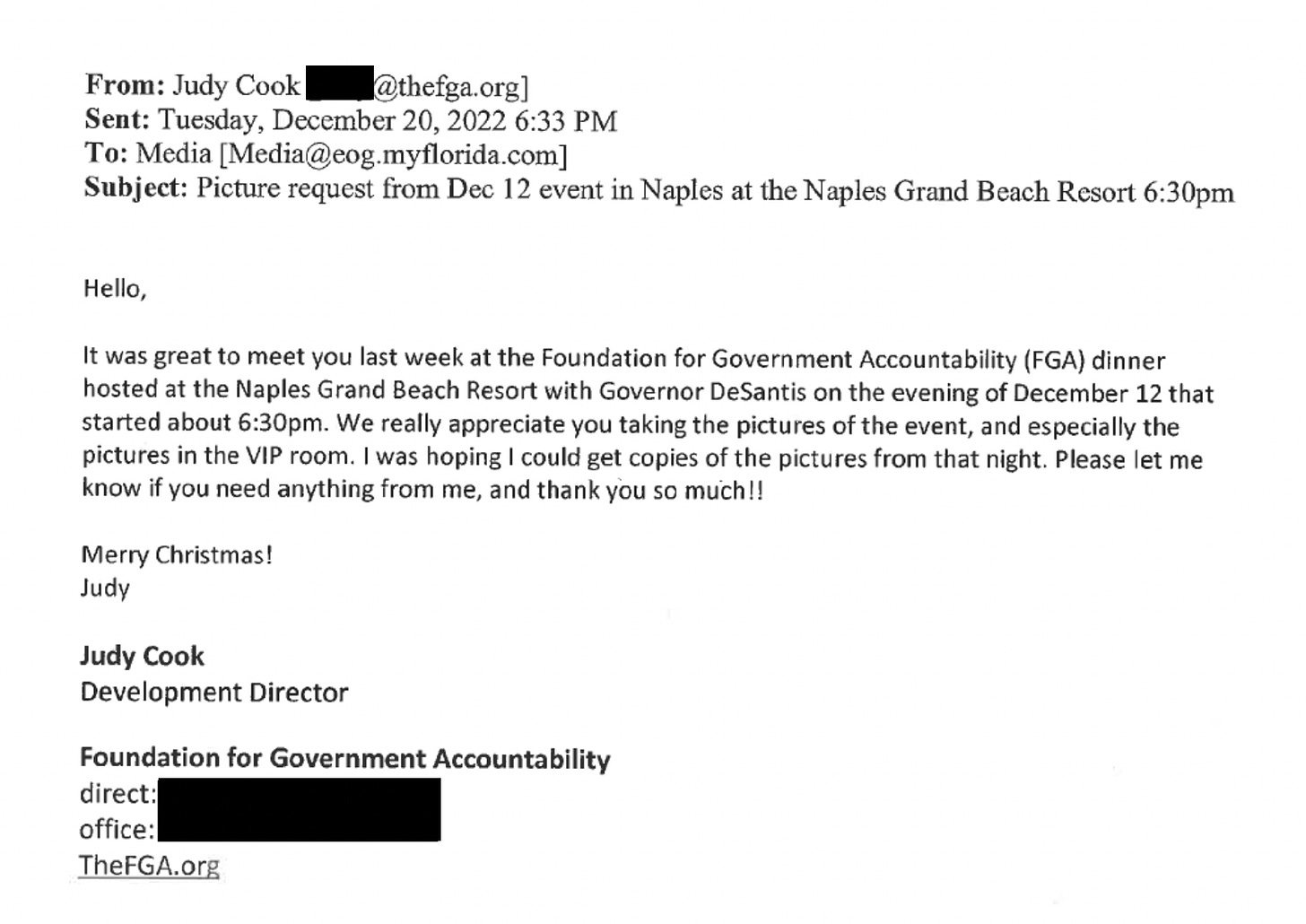
It’s a partnership that has proven fruitful for all three parties: The politician, the think tank, and the billionaire who funds them both.
But it has been brutal on working-class families in Florida.
With Uihlein’s FGA cheering him on and providing public-relations cover, DeSantis has slashed unemployment payments to laid-off workers. He has made it harder for public-sector employees to band together in unions and collectively bargain for better pay and benefits. And he has refused to extend Medicaid to an estimated 800,000 Floridians who don’t have health insurance — and is now presiding over a particularly callous purge of the state’s post-pandemic Medicaid rolls.
The FGA is pushing for more. Records show it been working on proposals that could deny food stamps to more Floridians, evict some people from affordable housing, lock full-time college students into near-full-time jobs, and allow government contractors to pay their employees poorer wages.
And sometime very soon, the Republican-controlled Florida Legislature will take up what activists say is the FGA’s newest priority: A bill that would weaken Florida’s child-labor laws and allow employers to make 16- and 17-old teenagers work the same schedules as adults.
There is a common thread binding each of these ideas together. They are all designed, ultimately, to push workers into low-wage, unsteady jobs by eliminating any leverage workers might have to demand better — whether by cutting off access to economic safety nets, weakening collective bargaining power. or flooding the labor market with cheaper alternatives.
It’s not clear yet whether DeSantis plans to push any of these latest ideas himself. A spokesperson for the governor declined to say whether DeSantis supports rolling back Florida’s child labor laws, for instance.
But the Republican governor made it very clear that he remains ideologically aligned with the FGA’s rugged approach to poverty during the most Republican presidential debate, when he was asked why Florida is one of the very worst states in the country when it comes to ensuring its people have health insurance.
“We…don’t have a lot of welfare benefits in Florida,” DeSantis said. “This is a field of dreams. You can do well in the state. But we’re not going to be like California and have massive numbers of people on government programs without work requirements. We believe in work, and you got to do that.”
The billionaire and his think tank
There are a couple of important things to know about the Foundation for Government Accountability, which was founded 13 years ago by a former Republican politician from Maine and is based out of a shopping plaza in Naples next to a Publix grocery store.
First, while the organization is not entirely funded by Dick Uihlein, tax records show that he is its biggest donor.
In fact, the FGA raised just over $49 million between 2017 and 2021, the most recent year for which comprehensive tax returns are available. Nearly a third of that funding — $15.3 million — came from the Ed Uihlein Family Foundation, a private foundation that Dick Uihlien personally leads and funds. (Ed Uihlien was his father.)

Second, the FGA promotes a host of causes — from making it harder to vote by mail to eliminating diversity programs in public universities to helping politically active nonprofits hide their donors from public disclosure.
Some of its ideas are actually pretty good. For instance, the FGA has pushed for legislation in Florida that would prevent hospitals and staffing companies from forcing doctors to sign non-compete deals. (The Florida Legislature has repeatedly refused to pass that legislation.)
But the FGA focuses most of its firepower on undermining low-income workers.
The organization is probably best known in Florida for opposing any expansion of Medicaid under the Affordable Care Act — something that would extend health insurance to an estimated 800,000 low- and moderate-income Floridians. Many of those people currently fall into what’s known as the “coverage gap,” because they make too little to qualify for Medicaid under Florida’s rigid rules but not enough to qualify for federal tax subsidies that would help them afford private insurance.
But the FGA’s work in Florida has gone far beyond Medicaid expansion. The group — which has a lobbying arm called the “Opportunity Solutions Project” — has also supported policies that have:
Cut — by more than half — the amount of money that laid-off workers can receive through Florida’s unemployment insurance program
Forced people to submit to drug testing before they could receive temporary cash assistance (though courts later ruled this unconstitutional)
Imposed “work requirements” on many Floridians as a condition of receiving food stamps.
Eliminated $300-a-week emergency unemployment payments for jobless Floridians that were funded by the federal government during the COVID-19 pandemic
Made it harder for public-sector workers to pay dues to their union — while also requiring more of them to pay dues if they want to keep their union
And those are just the policies that have passed. The FGA wants far more than that.
Last December, for instance, staffers at the FGA sent DeSantis’ office a series of policy proposals. One of their ideas would have mandated work requirements for more Floridians in need of food stamps — including for parents with children as young as six years old. Another would have mandated work requirements for some people living affordable housing, and forced them out of that housing entirely after just three years.
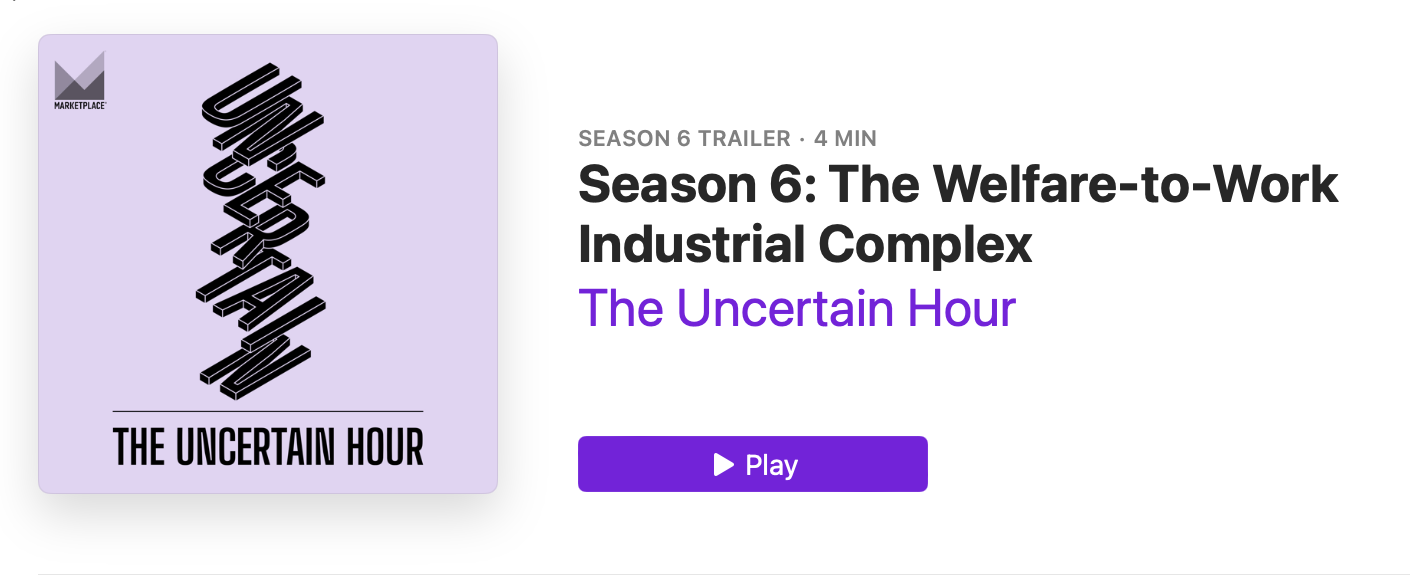
And lobbying records in the state House show that the FGA — through its Opportunity Solutions Project — was involved in the lobbying for a bill that have eliminated ordinances in communities like Miami, St. Petersburg and Gainesville that require companies receiving government contracts to pay their employees a living wage.
Even some of the bipartisan, broadly popular ideas that FGA supports are a double-edged sword for workers.
For instance, Florida used to require high school students complete up to 100 hours of volunteer service to qualify for Bright Futures college scholarships. But the FGA lobbied for legislation in 2022 that allows students to fulfill that volunteer service requirements with paid work, instead.
The legislation passed by wide margins in both the state House and Senate — and it probably deserved to. This seems like an idea that should help kids from lower-income families who can’t afford to spend time volunteering, and who already face other structural disadvantages when it comes to qualifying for Bright Futures scholarships.
But it will also add more cheap supply to the labor pool.
Perhaps nothing illustrates the FGA’s ideology better than its approach to the nation’s student debt crisis.
The FGA was one of the conservative groups that fought in court to block President Joe Biden’s plan to forgive $10,000 of student debt for low- and middle-income borrowers.
Instead, records show the organization has pitched a different idea to the DeSantis administration: Establish work programs at public universities in which full-time students wouldn’t have to pay tuition or frees themselves — as long as they sign annual contracts committing them to working year-round, 24-hour-a-week jobs at a nearby business while they are in school.
“If Florida were to implement a statewide program like this,” the group wrote in one of its December 2022 memos to DeSantis’ office, “It would practically eliminate the need for any student to take on debt and make their education more relevant with this work component as well as help fill the labor shortage in Florida.”
Unraveling child-labor laws
It’s worth keeping all that context in mind as the Florida Legislature prepares to take up House Bill 49.
Under current law, companies can only squeeze so many hours out of kids. For instance, they can’t have 16- or 17-year-olds working anytime between 11:00 p.m. and 6:30 a.m. on a school night. They can’t use them for more than eight hours a day on a school night, either, or for more than 30 hours a week when school is in session. There are stricter limits for younger kids, too.
HB 49 would lift all restrictions on employing 16- and 17-year-olds.
In other words, a 7-Eleven could put a high-school sophomore on the graveyard shift — even if the kid has school the next day.
That’s not all. The legislation would also tie the hands of local communities around Florida, by forbidding any city or county from passing a stronger child-labor law of its own.
Florida is now the 13th state in the country to introduce legislation this year that would weaken child-labor laws, according to the Economic Policy Institute. Many of those bills are being pushed by the FGA, which has explicitly framed the issue as a way to expand the labor pool for businesses.
The Florida bill was filed in Tallahassee by state Rep. Linda Chaney, a Republican from St. Pete Beach. She would not say whether she has worked with anyone from the FGA on the legislation. No one from the FGA would say either.
But a lobbyist for the FGA’s advocacy arm — the Opportunity Solutions Project — was the first lobbyist to register on the bill, according to disclosure records in the state House.
For her part, Chaney said in an emailed statement that she wants “to provide teenagers with the flexibility to work whatever hours they deem fits [sic] best with their schedule and financial goals.”
“Government should not be in the way of people wanting to learn skills and make a living,” she added.
But for all the speeches we are likely to hear over the next few months about family flexibility and parents’ rights, that is not why bills like HB 49 are suddenly surfacing in state Capitols around the country.
Like all so many other policies the FGA promotes, this is really just another way to undercut workers — in this case, by allowing businesses to use more cheap teenage labor instead of raising pay to attract more adult employees.




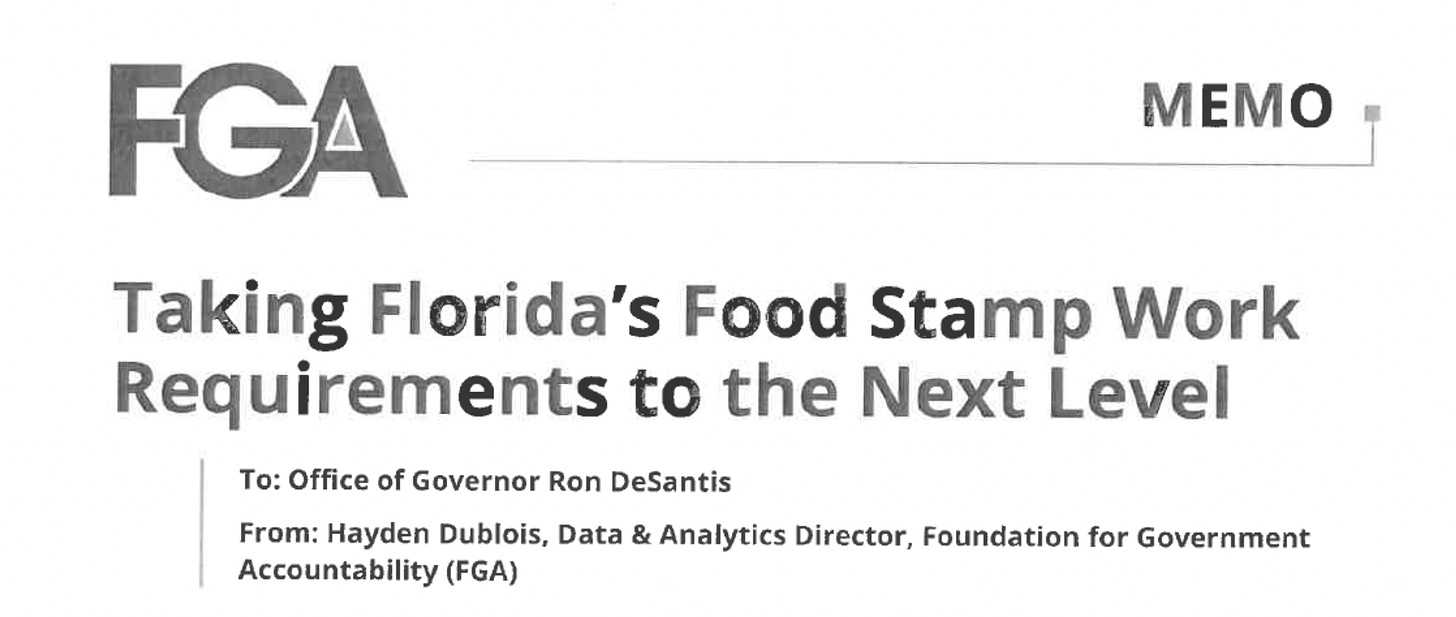
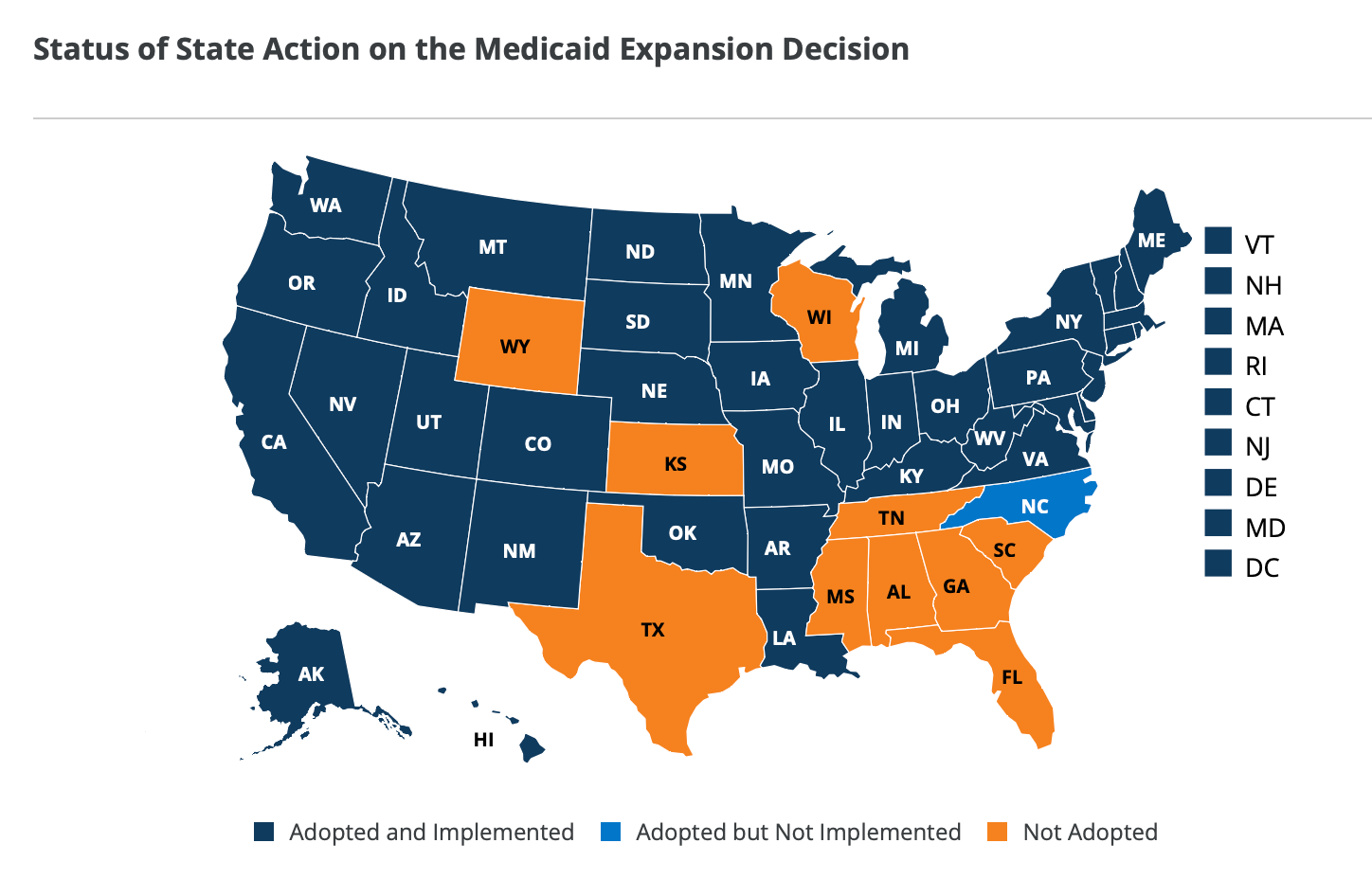

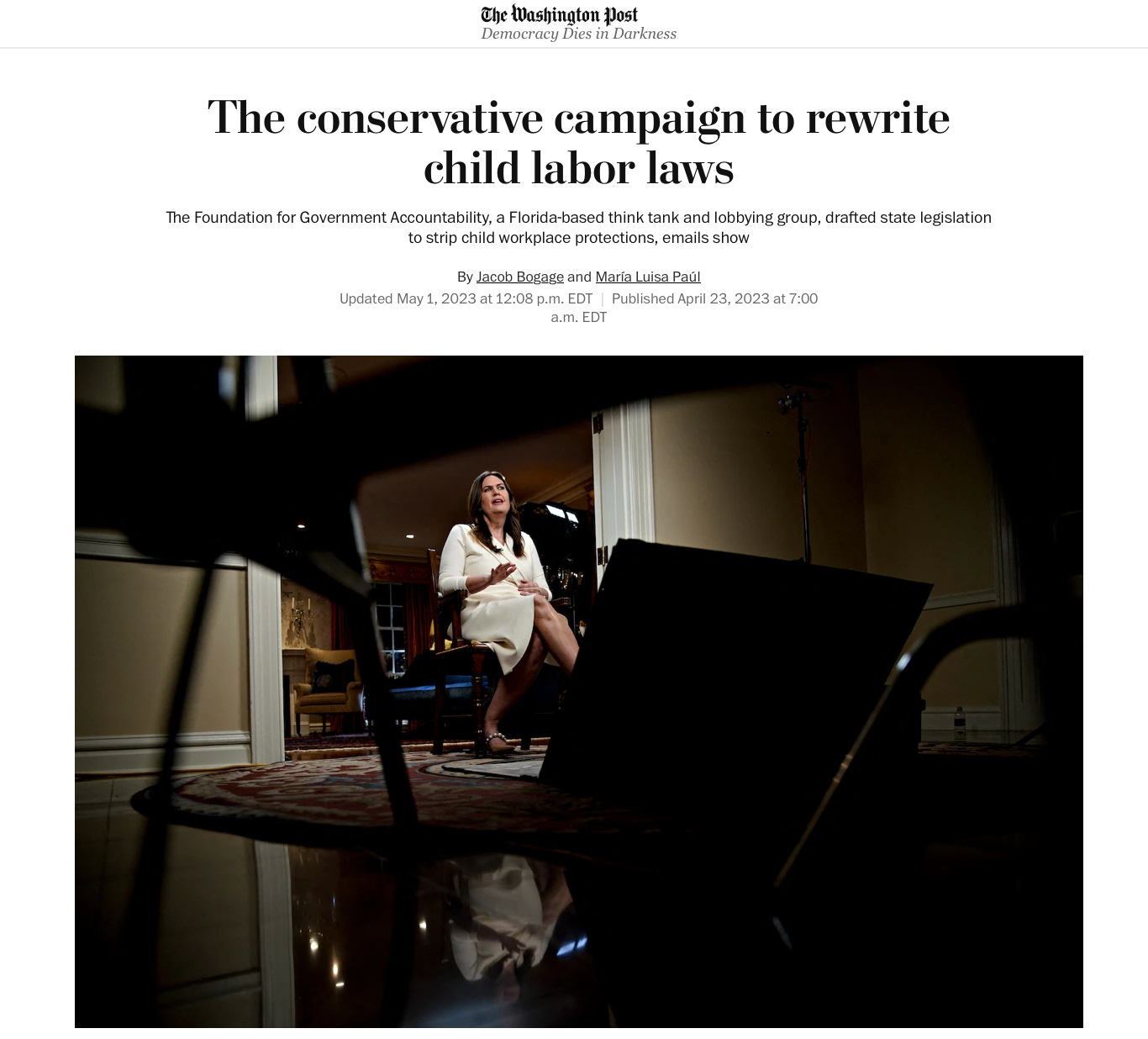

Uline is corrupt this isn’t first time and we all should boycott
Workers or slaves? Florida is the South, after all. Child low-wage slave labor— Now we know why Remington Firearms passed on moving to Florida, its large, emergent and Illiterate proletariat groomed to serve a global, jet-setter oligarchy.